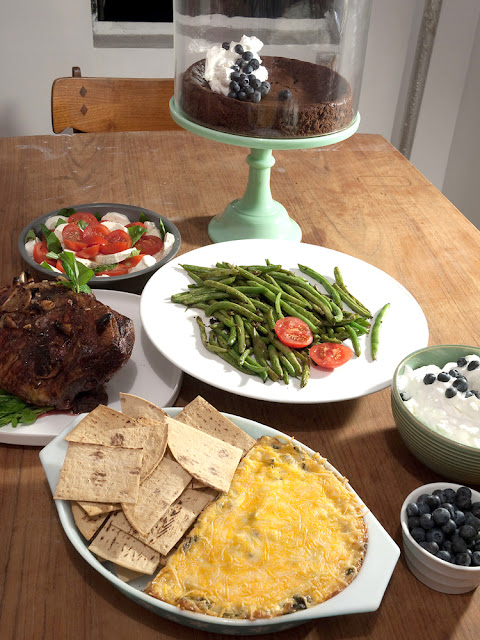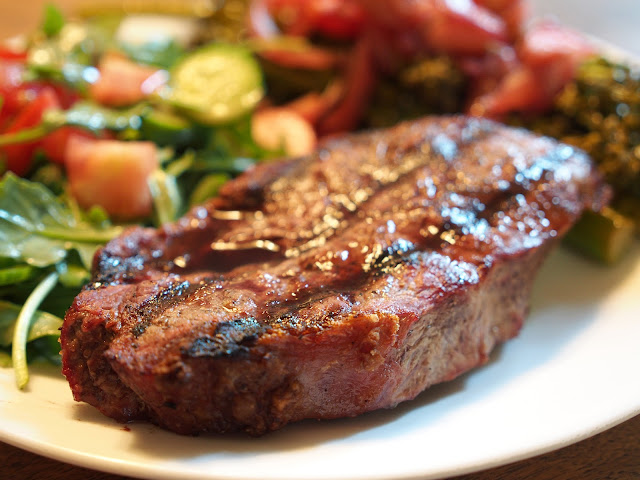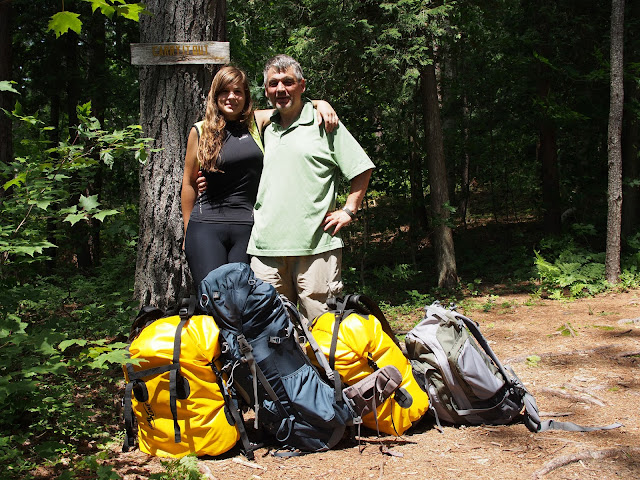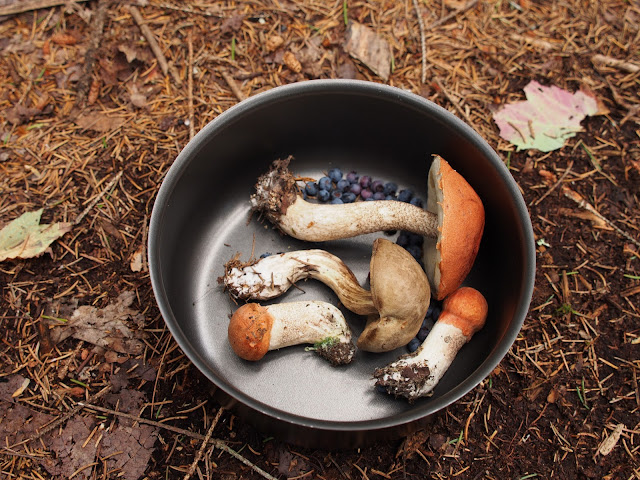Monday
We parked our car by Little Clear Pond and built our canoe to the shock and awe of fellow travelers. After packing our boat with four huge sacks of supplies, we headed out on the water. Crossing Little Clear Pond, we carried our boat and belongings across a quarter mile of forest.
The woodland path leads to a narrow 24 inch pier that stretches forward for at least a hundred feet. This narrow strip of plank is surrounded by marsh and swamp. This is like no swamp I have ever seen - beautiful green and red moss surrounds our straight path to the water. Young pine trees rise like beacons out of the moist, fluffy carpets at their feet. Around the the pines grow bushes of blueberries and sage. It seems like this garden of scent and taste spreads infinitely to my left and to my right. The blueberries ripen quickly in the hot summer sun and I reach to gather them as I pass along the pier.
I step off the path and my feet sink lightly into the mossy bed. Water rises up and tickles my toes through my sandals. It is an oddly delightful feeling, like walking on a shag rug submerged in three inches of water.
As I gather more berries, I notice a stalky, green flower, one I have seen before. Upon closer inspection, I realize that at the base of this flower lives a huge pitcher plant. Surrounding me appear dozens and dozens of his cousins, whom I see regularly at botanic gardens, but never in the wild.
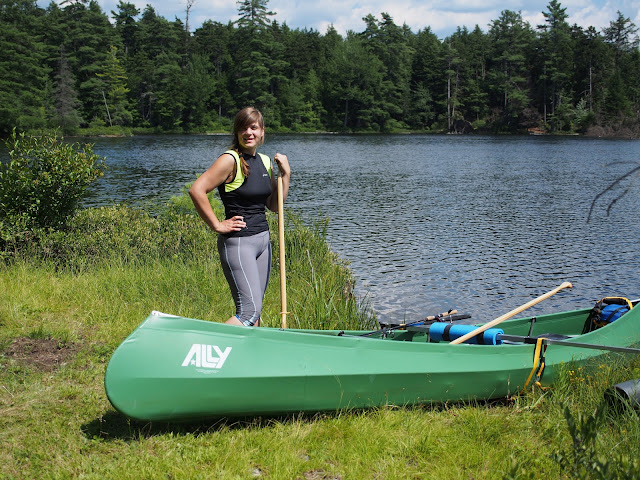
We board the canoe and push out to clearer water, past blooming water Lillie's, bog plants, and through armies of water gliders. Colorful frogs abandon their miniature grassy islands as we float by.
After much heavy rowing against the wind, we find our first home on the lake - spot number nine along the eastern shore of St. Regis Pond. We walk up a narrow path to a shaded clearing on a hill. Young blueberry bushes grow in the fields along the hilly approach to the water's edge. A few yards to the right, and climbing up the hill, the towering pines turn instantaneously into birch woods. While there is little more sun flickering through the canopies here, the atmosphere feels lighter. The trees boast beautifully white trunks which slowly peel and litter the floor of the wood.
I decide to swim out to the island near the shore. I swim to a big rock right by the shore of the island, climb up and watch the sun set. The sky quickly turns peachy orange, like the meat of a nectarine, reflecting in quiet ripples across the miles or breadth of St. Regis Pond. It seems like the sky is melting into the water. The sun sets right between the rivaling peaks of East Pond Mountain and Long Pond Mountain. As it settles in the valley between the mounts, the sun seems to call out "how could you think I should be viewed from any other angle?" The mountains seem a deep violet, the forests around them some shade between indigo and pthalo green. The colors keep intensifying until they merge and explode in shades of red and violet.
As I sit on the rock, dragonflies and other mysterious insects fly and settle for a second on the water. The unlucky ones become dinner for a quick thinking fish. I watch my dad fish and listen to the fish splash as they jump out of the water until the sun disappears behind the mountains.
We finish off the evening drinking tea with chocolate as the fire consumes itself.
Tuesday
I sit at the edge of the water as my hair dries from my first lake sized bath. My feet are in the water to see how close the fish will dare to swim. I look to my right and notice something hairy - another relative to the Venus fly trap - I am so tempted to dig it up and take it home with me. I barely notice a young crayfish trying to eat my big toe.
There is a little island at the edge of Little Long Pond. The island is dry and the grass is sprinkled with the blooms of wild strawberries. If you walk across its 15 foot diameter, you meet two trees between which a domino chain of fallen logs and nailed in planks lead you to the shore of the mainland. Along the old fallen free grows an amazing variety of bog plants and violet flowers which look suspiciously like terrestrial orchids.
We part ways with our little island and head towards the canoe carry to cross to Bear Pond. We set off on a scenic tour and settle on a patch of quiet water by the shore protected by a towering cliff overgrown with fern and young trees. Floating tree trunks nestle young fields of yellow water lilies and bog plants.
This is my first time fishing - I hope for an epic photographic moment but only catch a couple of the tiny fish that are willing to bite at anything including an empty hook and my finger as I dip it in the water.
Wednesday
We paddle the length of St. Regis Pond to the canoe carry to Ochre Pond. This first leg of our hike is an even half mile walk with only a 20 meter elevation, which sounds easy until you imagine yourself carrying 100 pounds of gear and a 16 foot boat. With all of our belongings divided into two bags, we make two trips, thus, every distance is covered thrice. We each wear a bag and dad carries the canoe on his shoulders. I walk ahead to clear the way. Many trees have fallen since anyone seems to have dared these more strenuous trips.
We walk our boat to the narrow launch point, perhaps too narrow for our boat to fit. We make it across Ochre Pond without incident and land briskly on the other side. We walk our bags down the long, narrow, winding plank from Ochre Pod and encounter a muddy course with ancient rocks and plank formations that have long since fallen prey to the moisture of the muddy bog. Several mucky slips later, we safely made it to dry land.
Alas, we come upon the great challenge for the day - our 1 mile hike through the forest at the foot of St. Regis Mountain with somewhere between 30 and 40 meters of elevation, and crossing through four major hills. We ascend a decent while and begin a bumpy descent along the edge of a steep hill. Pine trees block us in on the right from tumbling into a narrow swampland named Monday Pond. A quarter mile down the road, a tree has fallen, managing to land it'd trunk directly in that spot that is too high to climb over yet too low to climb under with our heavy packs.
We cross a brook and head back uphill. Finally comes the descent to Mud Pond - it was not named in vain. The last quarter of a mile involves a 45 degree drop followed by a jungle of mud and soggy grass. It is rather beautiful - covered with multicolored mosses, tall, whistling grass, and pitcher plants - yet an incredibly challenging terrain. Dad drops the boat as the mud consumes one of his shoes - we valiantly try to recover it. We pick up the boat and carry it together, until I slip and fall all the way up to my thigh.
Trees and brush grow on either side of the pier and the moss grows especially high. I want to wash off my legs - I sit on the mossy bank looking at the floor, which appears to be no more than two feet below the surface. Perfect, I think, I try to stand and wash the mud off my legs and unceremoniously fall to my ribs until I catch myself and pull back up on the moss - it almost caves at my weight. I come to two conclusions here; the water is definitely more than four feet deep and the shore is merely a sturdy growth of moss floating in the water.
The second entry is by no means as difficult as the first and we quickly make the last carry through an ancient pine forest to the sandy floored waters of Fish Pond. We cross the lake in search of shelter as the rain sets in. I climb a hill until I find a fire pit and a clearing. On the walk up, I find hundreds of blueberry bushes which look ripe to pick. From the top of the hill, where our new camp stands, I can see both lakes and the sunset through the tall tree trunks and listen to the cooing sounds of a babbling brook that connects the two pools of water.
As I lay in the tent writing with the water proof door open for air, I have been watching a large green frog that has been standing sentinel three inches from my tent on top of my backpack. For over 30 minutes it has been watching me and I am not sure whether I should turn off my headlamp or go ahead and kiss the frog to see if its a prince.
As I turn out my lamp an hour later, it is still there, watching me.
Thursday
On an exploratory mission, we paddle out to the first spot that looks like it could be a camp site. We hike along the shore until we find a pathway which leads us to a clearing with a three-walled enclosure - exactly what we were looking for last night with the impending rain.
It seems as if everyone who has ever visited decided to leave something behind as a gift, despite the regulations against such acts of generosity. Someone made a table by nailing a slab to the side of the wooden structure and supporting it with two legs of curling birch branches. Atop this leaning table lay scattered various blackened cooking utensils. Above it on the outside wall, someone made a series of nail hooks upon which hang a half a dozen mismatched pots and skillets in various states of rot, rust, and disrepair, likely never to find use again.
Turning the corner, you find the inside of a rustic enclosure - three sides built of round logs, supported by a wooden roof and a flat sleeping surface. A lonely chair sits on the left hand side, overlooking the fire pit and the trees beyond. It's back brace has long been compromised and was replaced with a branch duct taped in place. The dilapidated chair feels lonely as the sole occupant of such an enclosure - it seems to imply a portrait of the soul that chose to abandon it here. A wooden shelf protrudes from the wall above the chair. Among gifts or rope, matches, nails, and baked beans, a plastic bag holds a sign in log. I leaf through the pages trying to match the names with the various carvings and signatures scattered among the interior walls. I sign my name at the end of the list and we continue our walk.
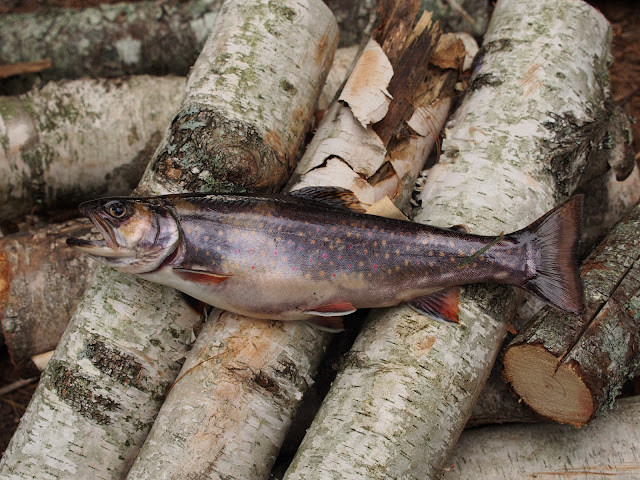
Back on the water, the wind quiets down, I can see ribbons of water with different wave patterns than the rest, it seems to be one stream that spins and winds itself around the lake. In the midst of my reverie, dad catches an 11 inch brook trout. It is a beautiful fish with a cerulean blue skin that folds into a warm silver, splattered throughout with pink and purple polka dots. While dad cleans the fish, I make a batter of seasoned pancake mix. I dip the fish in batter and fry it with margarine to a perfect effect.
On the high of our first conquest, we return to the lake. We spend an hour or two on the water and it begins to rain more and more. As we paddle home, I watch the steam rise up from the surface of the water, as if a demon is boiling us alive in a giant lot. The water is much warmer than the air.
Ironically, the rain and wind cease as we touch our shore. We end he evening sipping whiskey and eating chocolate.
Friday
The rain stopped and the sun shines brightly in the sky. Each leaf harbors a souvenir of last nights's rain and wets your legs as you walk down the narrow paths. We bid adieu to our second camp and make the carry to Clamshell Pond.
We settle on the only camp on the pond, again we have our own private lake. The camp site is surrounded by giant pine trees and rests right at the edge of a small peninsula. The floor is covered with pine needles, soft enough to walk barefoot. There is a heavy wind that whistles brought the trees and spreads the scent of amber pine sap over the water.
I am lying in the thin, nylon hammock as the wind repeatedly sets each side of me into motion. The blue folds of fabric expand like sails to my left and to my right interchangeably. I feel a bit like Titian's Europa as she is carried off by the bull, flailing a pink cloth in her wake.
Looking up, the tips of the pines lean and dance together in the wind. The breeze whistles through the branches and the clouds shift to allow the sun to dapple through their needles. It is as if they are dancing in a show - choreography, music and lights in tow. I take turns between reading and writing in the shelter of my blue sail.
All of a sudden, the sunlight disappears and the wind becomes much more rough. We hop into the tent just in time for a torrential downpour. It seems at first at if we were not weighing down the tent, it would fly off into the water. Out of nowhere, the rain stops, and the sun appears again. Everything is still and quiet in the sun - the temperature dropped a good 10 degrees and tufts of steam rise from the water. Two rainbows appear from beyond the trees, one the inverse of the other.
I swim out to the other shore for a better look. Clambering up on a rock, I watch the rainbows glisten in the sky until they fade a couple of minutes later. The sun continues its descent below the horizon. I swim back and discover that the water in the curling ribbons in the lake are distinctly colder than the water around them. This reminds me of underwater lakes, a concept of which I am really fond.
We dine and watch the lightning light up a deep violet sky into a dull yellow lavender. The mountain peaks contrast sharply against the light flares. I almost looks like giant jellyfish swimming in the darkness of the sea.
Saturday

We pack up and paddle out to the canoe carry that will take us through a mile long course to Turtle Pond. This will be our final great challenge, and the longest without pause. This hike will also be the most vertical, with an elevation between 60 and 70 meters. We scale uphill on a muddy path, surrounded by an all-American wood, if you accept that description - young oaks and brush and loads of fresh vegetation. As the ground levels out, we are met by a young river followed by yards and yards of muck.
Immediately after the mud fields, begins a steep decline until we walk into an older pine wood. Through the tall, narrow trees, I can see a green clearing, but it I'd much too soon for our walk to be over. We reach the ground plane, and the air takes on an earthy, moist smell once more, where only a hundred feet before, it smelled of dried fruit and cardamom.
As we walk among a pathway of younger pines, a huge green expanse of grasses begins to brew to our left. Skeletons of pine trees lean amongst the moist grasses, serving as monuments for the fallen wood that perished with the coming of the marsh. We follow a narrow clearing into the tall grasses of the marsh land - our sandals sink into the warm water under our weight.
Falling back into the wood, we begin a climb along the edge or a hill. The pines become older and more scarce and in sunlit clearings, fields of moss and other greenery take charge of the land. Here I find a single, half ripened raspberry reaching coyly from a young branch amongst the ferns. The skies are filled with pines again and the fern fields become scarce. Colorful mushrooms stare at us from among the old, moss-ridden stumps. They call to us like sirens, masking their poison behind brightly colored caps and frilly gaiters. But we have known their tricks for years and leave them be.
We make it to turtle pond with no breaks - a feat of strength, in our opinion. We see a group of three boats sail away from us as we reach the shore. These are the first people that we have seen since leaving St. Regis Pond on Wednesday, and I cannot deny the disappointment of no longer feeling like the only occupants of the world around us. We head over to the next lake to remain as far from civilization as possible.
The route to Slang Pond is through a narrow river filled with reeds and curious water plants. At its narrowest point, the green seaweed coated lake bed turns into a collection of palm sized pebbles, smooth from the constant stream of water. The pebbles are six to eight inches below the surface, we manage not to get our heavy-laden canoe caught on the stones.
Sunday
I wake up to the various sounds of the birds intermingled with a rhythmic, light tap on the tent, which I later discovered to be a young squirrel's doing as he dropped empty sheaths of pine cone as he progressed in this morning meal.
Going out on a walk, I find myself trapped by a fallen pine tree. I decide to wiggle under it as right past this obstacle grows a hardy mushroom with an ochre-ish top. This was my favorite mushroom in Belarus, its name translates to "one who grows under pine trees." I find two others on my trip through the woods along with one member of its cousin species, "one who grows under birch trees." Comically, each was found under the protection of its namesake tree.
Now we have to pack up camp and head back to civilization - towards a four mile walk to where we left our car last Monday.
- - -
Dad has been walking for a half am hour or so and I have finished folding up our 16 foot canoe into a rectangle the size of a fashionable lady's suitcase. I unpacked one of our chairs and parked it in the golden sand at the edge of the water. I write with my feet in the warm water and await the end of my wonderful weeklong adventure.


